As a fitness enthusiast and health advocate, I understand the desire to optimize workouts and achieve peak performance. Pre-workout supplements have gained popularity in recent years as a means to enhance energy, focus, and endurance during exercise. However, when it comes to teenagers, the use of pre-workout supplements becomes a topic of concern. In this article, we will delve into the risks and benefits associated with pre-workout supplements for teens, shedding light on whether they should be used or avoided altogether.
Table of Contents
ToggleWhat are Pre-Workout Supplements?

Before we delve into the topic, let’s first understand what pre-workout supplements actually are. Pre-workout supplements are formulated to provide an energy boost, enhance focus, and improve athletic performance. These supplements often contain a combination of ingredients such as caffeine, creatine, beta-alanine, and various vitamins and minerals.
The Risks of Pre-Workout Supplements for Teens
While pre-workout supplements may seem appealing to teens looking for an extra edge in their workouts, it’s important to be aware of the potential risks involved. One major concern is the high caffeine content found in most pre-workout supplements. Excessive caffeine consumption can lead to adverse effects such as increased heart rate, elevated blood pressure, restlessness, and even anxiety. For teenagers whose bodies are still developing, these risks can be amplified.
Another risk associated with pre-workout supplements is the potential for harmful side effects. Some individuals may experience digestive issues, such as stomach cramps or diarrhea, while others may suffer from headaches or sleep disturbances. Furthermore, certain ingredients found in pre-workout supplements may interact negatively with medications that teens may already be taking.
Additionally, the lack of regulation in the supplement industry poses a significant risk. Unlike pharmaceutical drugs, dietary supplements are not subject to rigorous testing and quality control. This means that the accuracy of ingredient labels and the safety of the product cannot always be guaranteed. Teens may unknowingly consume substances that are not listed on the label or are of questionable origin, which can have serious health implications.
Potential Benefits of Pre-Workout Supplements for Teens

While the risks are certainly concerning, it’s important to acknowledge that there may be potential benefits to the use of pre-workout supplements for teens. When used responsibly and under the guidance of a healthcare professional, pre-workout supplements can provide a temporary energy boost and enhance athletic performance. They may also aid in increasing focus and motivation during workouts, helping teenagers to achieve their fitness goals.
It’s worth noting that some pre-workout supplements contain ingredients that have been scientifically proven to enhance exercise performance. For example, creatine has been shown to increase strength and power output, while beta-alanine can improve endurance. However, it’s important to remember that these benefits are not exclusive to pre-workout supplements and can also be obtained through a well-balanced diet and proper training.
The Importance of Consulting a Healthcare Professional
Given the potential risks and benefits associated with pre-workout supplements for teens, it is crucial to consult a healthcare professional before considering their use. A qualified healthcare provider can assess an individual’s overall health, consider any pre-existing medical conditions, and evaluate whether the use of pre-workout supplements is appropriate. They can also provide guidance on proper dosage, potential interactions with medications, and any necessary precautions.
It is especially important for teenagers to consult a healthcare professional because their bodies are still developing. The impact of certain ingredients found in pre-workout supplements may differ for teenagers compared to adults. Adolescents may be more susceptible to the side effects of caffeine and other stimulants, making it crucial to seek personalized advice.
Alternatives to Pre-Workout Supplements for Teens
For teenagers who are eager to enhance their exercise performance but wish to avoid the potential risks associated with pre-workout supplements, there are alternative strategies that can be employed. Firstly, ensuring a well-balanced diet that includes a variety of nutrient-dense foods can provide the necessary energy and nutrients to support athletic performance. Foods rich in carbohydrates, protein, and healthy fats can fuel workouts and aid in recovery.
In addition to a nutritious diet, proper hydration is essential for optimal performance. Drinking enough water before, during, and after exercise helps maintain hydration levels, which can impact energy and endurance. Teens should aim to consume water regularly throughout the day, even when they are not engaged in physical activity.
Another alternative to pre-workout supplements is focusing on adequate rest and recovery. Ensuring that teenagers are getting enough sleep and allowing their bodies time to rest and repair is crucial for optimal performance.
Encouraging good sleep hygiene, such as establishing a consistent sleep schedule and creating a relaxing bedtime routine, can contribute to improved physical and mental well-being.
Tips for Safe and Responsible Supplement Use

For those who still choose to use pre-workout supplements, it’s important to do so in a safe and responsible manner. Here are some tips to keep in mind:
- Read and understand the labels: Familiarize yourself with the ingredients and dosage recommendations. Look for certifications or third-party testing to ensure the product’s quality and safety.
- Start with lower dosages: Begin with a smaller dose to assess your tolerance and how your body responds to the supplement. Gradually increase the dosage if necessary, but never exceed the recommended amount.
- Avoid stacking supplements: Combining multiple supplements can increase the risk of adverse effects and interactions. Stick to one pre-workout supplement at a time.
- Stay hydrated: Remember to drink plenty of water throughout the day to maintain proper hydration levels, especially when using pre-workout supplements.
- Take breaks: It’s important to give your body a break from pre-workout supplements. Periodically cycling off the supplement allows your body to reset and prevents potential dependence or tolerance buildup.
Case Studies and Real-Life Examples
To illustrate the potential risks and benefits associated with pre-workout supplements for teens, let’s explore a few case studies and real-life examples:
- Ethan, a 17-year-old athlete, began using a pre-workout supplement without seeking professional advice. He experienced increased heart rate and difficulty sleeping, which negatively affected his athletic performance. After consulting a healthcare professional, it was determined that the high caffeine content in the supplement was the cause of his symptoms. Ethan discontinued its use and focused on improving his diet and sleep patterns instead.
- Sarah, a 16-year-old track and field athlete, consulted a sports dietitian before incorporating a pre-workout supplement into her routine. The dietitian assessed her overall health, evaluated her specific nutritional needs, and recommended a supplement that was safe and appropriate for her age and activity level. With the dietitian’s guidance, Sarah was able to enhance her workouts without experiencing any adverse effects.
These examples highlight the importance of seeking professional advice and making informed decisions when it comes to pre-workout supplements for teens.
The Role of Parents and Educators in Guiding Teens
Parents and educators play a crucial role in guiding teenagers towards safe and responsible supplement use. It’s important for them to educate themselves about pre-workout supplements and the potential risks involved. By staying informed, parents and educators can engage in open and honest conversations with teenagers, providing them with the necessary information to make informed decisions.
Parents can encourage healthy habits by promoting a balanced diet, proper hydration, and adequate rest. They can also foster an environment where open dialogue and communication are encouraged, allowing teenagers to express their desires and concerns regarding supplement use.
Educators, on the other hand, can incorporate discussions about supplement use and its potential risks into physical education classes or health education curricula. By providing accurate information and raising awareness, educators can empower teenagers to make educated choices about their fitness and well-being.
Frequently Asked Questions
What are pre-workout supplements, and what do they do?
This question provides an introductory explanation of pre-workout supplements and their intended effects, setting the stage for further discussion.
Are pre-workout supplements safe for teenagers?
This FAQ addresses the safety concerns associated with teenagers using pre-workout supplements, considering factors like their age, development, and potential risks.
What are the potential benefits of pre-workout supplements for teens?
Here, you can explore the possible advantages of teens using pre-workout supplements, such as improved performance or increased energy during workouts.
What are the potential risks or side effects of pre-workout supplements for teenagers?
This question delves into the potential downsides or health risks that teenagers may face when using pre-workout supplements.
How can parents and teenagers make an informed decision about pre-workout supplement use?
Offer guidance on the steps parents and teens can take to make well-informed decisions about using pre-workout supplements, considering their specific needs and circumstances.
Are there alternative ways for teenagers to enhance their workout performance safely and effectively?
Provide information on alternative methods and strategies that teenagers can employ to improve their workout performance without resorting to pre-workout supplements.
What should teenagers do if they experience side effects from pre-workout supplements?
Discuss the appropriate steps and actions teenagers should take if they encounter adverse effects while using pre-workout supplements, emphasizing the importance of seeking medical advice.
Conclusion
In conclusion, the decision of whether teens should use pre-workout supplements is a complex one that requires careful consideration. While there may be potential benefits to their use, the risks involved, especially for teenagers, should not be overlooked. Consulting a healthcare professional is crucial to ensure safe and responsible supplement use.
Alternatives such as a well-balanced diet, hydration, and adequate rest should be explored first, as they can provide the necessary support for athletic performance. Engaging in open and honest conversations with parents and educators can further contribute to making informed decisions.
Ultimately, the well-being and long-term health of teenagers should be the top priority. By prioritizing safety and seeking professional guidance, teens can achieve their fitness goals while minimizing potential risks associated with pre-workout supplements.


